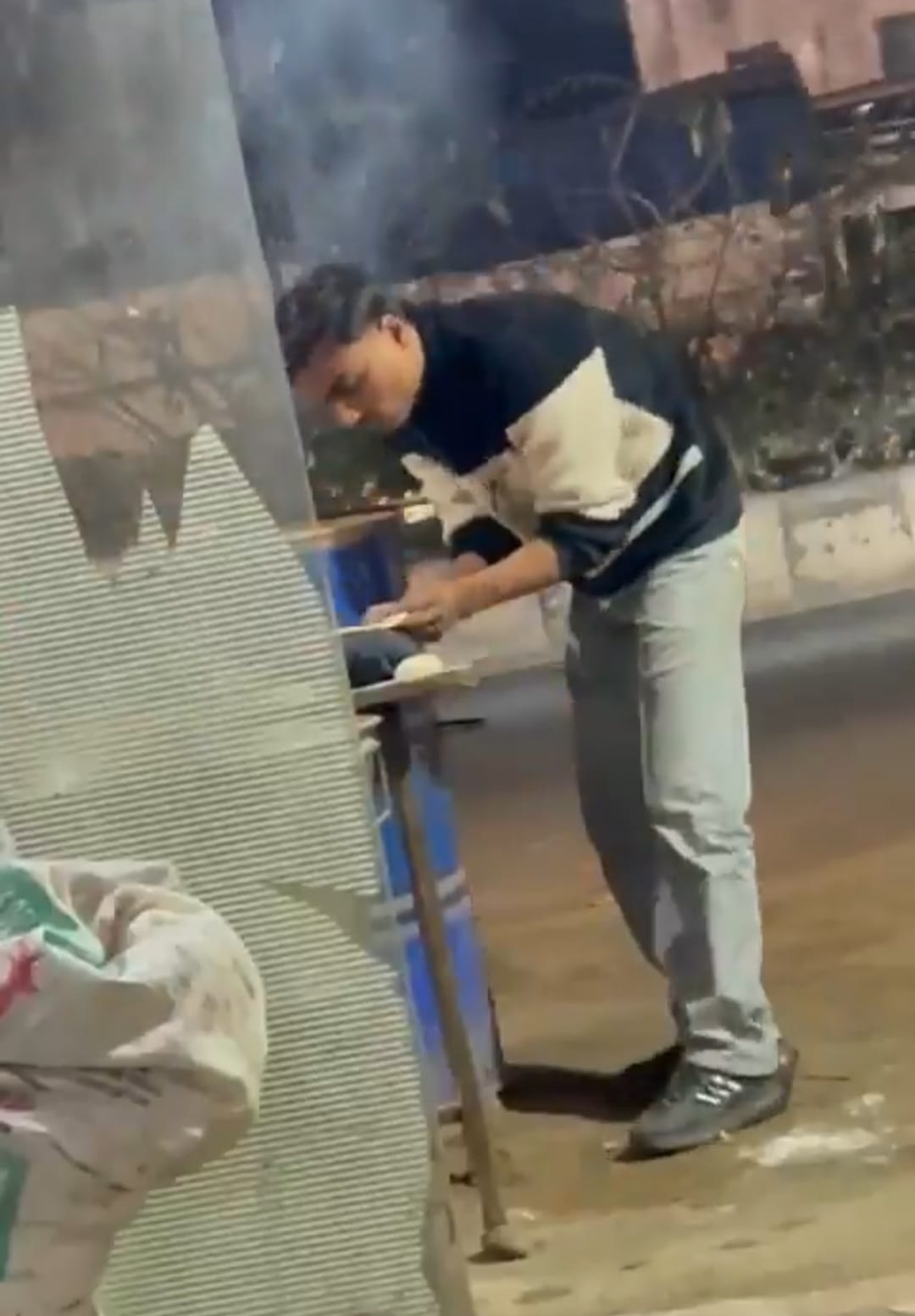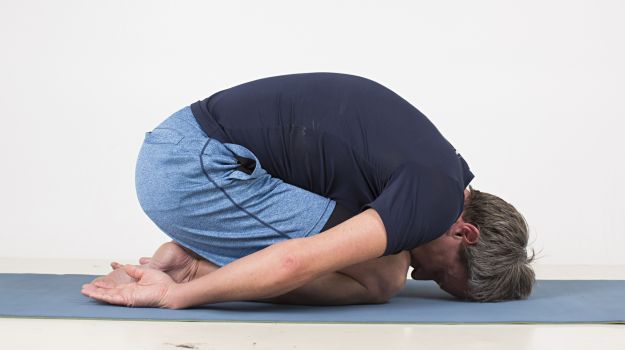Photograph: Graeme Robertson, guardian.co.uk
Here are five simple postures to ease insomnia, headaches, indigestion, anxiety and lower back pain:
For insomnia, try the …
Child’s pose (balasana)
Poses that fold your body in on itself are calming and restorative, as opposed to back bends, which are energising. “Do this pose just before bed, aiming for at least five minutes,” says yoga teacher Sally Lovett. “You can even do it in bed in the middle of the night if you find yourself awake and unable to sleep.”
Kneel with your knees together or slightly apart, whichever is more comfortable. Lower your bottom onto your heels and fold forward to place your forehead on the floor (or as close as you can get – use a block or cushion to support your forehead if you can’t reach the floor). Arms can be stretched out in front, palms down, or alongside your body, with your fingers next to your toes.
Close your eyes and breathe slowly in and out through your nose. Quietly focus on your breathing.
For headaches …
Seated forward bend (paschimottanasana)
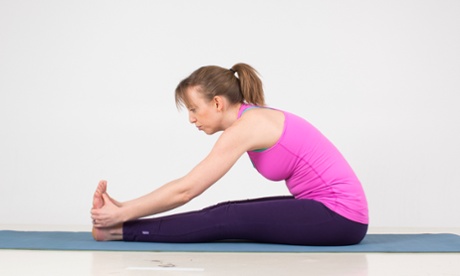
Headaches can be caused by anxiety and tightness in the neck and upper back, and this pose addresses both these areas. “Folding in on yourself forces introspection and is calming for the nervous system” says yoga teacher Steve Rawes.
Sit on the floor with legs extended out in front of you, toes pointing to the ceiling and back straight. Inhale and lift your arms above your head. Exhale, tip your pelvis forward, bend your torso from the hips towards your thighs and move your arms forward towards your toes. Gaze into the gap between your feet.
“Try not to round your back,” says Steve. “The ultimate aim is to reach your toes and have your head resting on your knees, but it’s not a competition. Just let your hands rest where you can comfortably get to with a straight back.”
Take five slow breaths. On each inhale, lift and lengthen the front of your torso. With each exhale, deepen the bend a little further. Come up slowly and give your legs a shake to release the muscles.
For indigestion …
Seated twist (ardha matsyendrasana)
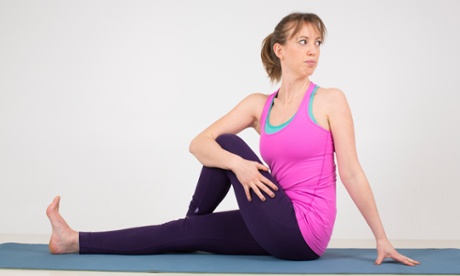
Twists gently massage and compress the internal organs. “This compression, followed by release when you come out of the twist, stimulates the digestive organs,” says Sally. Sit on the floor with your right leg extended out in front of you, your spine long.
Place your left foot beside the outside of your right knee, sole on the floor. Tuck your left knee into the crook of right elbow and hug the knee. Placing your left fingertips on the floor behind you, twist your torso to slowly to look over your left shoulder.
On every inhale, lengthen your spine upward. On each exhale, deepen the twist a little further. Hold for five breaths, turn back to face forward and repeat on the opposite side.
For anxiety …
Tree pose (vrksasana)
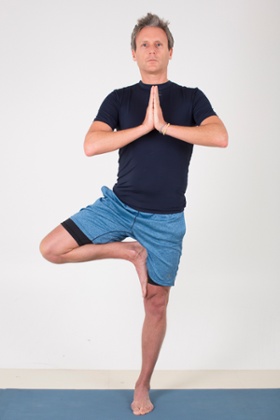
Tree pose helps to calm a racing mind and induce concentration. “It helps to find clarity, instead of staying trapped in the thought process,” says Steve. “Your mind must be completely focused on this pose to prevent toppling over, leaving no room for worry.”
Stand with feet hip width apart. Inhale and grow a bit taller. Exhale and draw your shoulders down and belly button in. Roll your shoulders up and back, and bring your palms together in front of your chest. Find a point in front of you to focus on.
Place the sole of your right foot on to your inner left calf. You can stay there or use your hands to place your right sole on your inner left thigh. Keep lifting up tall and make sure the pelvis is in a neutral position. Allow the right knee to relax down.
Hold for up to five slow, deep belly breaths, then use your hands to gently release the foot from the inner thigh. Repeat on the other side.
For lower back pain …
Standing forward bend (uttanasana)
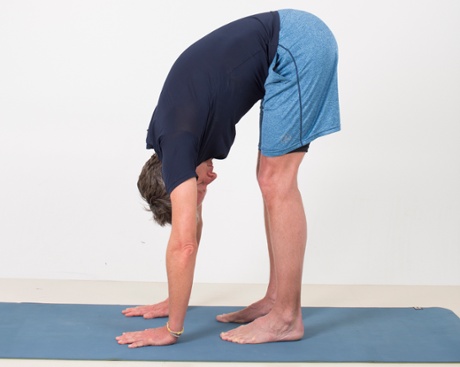
“This simple bend releases tightness in the lumbar spine using the weight of the head,” says Sally. “It also increases flexibility in the hamstrings down the back of the leg – tight hamstrings can cause lower back problems.”
Stand with feet hip width apart and bend slowly forward, hinging at the hip. Keep a soft bend in the knees to prevent straining the lower back. Aim for resting your hands on the floor, but just go as far as feels comfortable. Allow your arms and head to hang. Breathe deeply and slowly through your nose for a maximum of 10 breaths, then come up slowly, head and shoulders last. Move around a bit to loosen the stretched muscles, then repeat.



